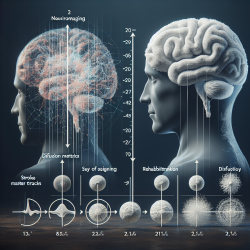The Unseen Connection: Physical Activity and Academic Performance
In the realm of education, academic outcomes have always been the focal point. However, a growing body of research suggests that physical activity (PA) plays a crucial role in enhancing academic performance. A recent study titled Study protocol for testing the association between physical activity and academic outcomes utilizing a cluster-randomized trial sheds light on this intriguing connection.
Data-Driven Insights from the Study
The study, conducted across 40 schools with nearly 5,000 fourth-grade students, aimed to evaluate the relationship between PA and academic outcomes. The research utilized a cluster-randomized trial to ensure robust data collection and analysis. The intervention, known as "Health Empowers You!", was implemented in half of the participating schools to promote increased PA among students.
Key findings from the study include:
- Students engaging in regular PA showed improved academic outcomes, particularly in standardized test scores and classroom grades.
- The intervention led to a significant increase in students' daily PA, highlighting the effectiveness of school-based PA programs.
- Moderate to vigorous physical activity (MVPA) was positively associated with better academic performance, suggesting a dose-response relationship.
Implications for Practitioners
For practitioners working in schools, these findings underscore the importance of integrating PA into the daily routine of students. Here are some practical steps to consider:
- Implement Comprehensive School Physical Activity Programs (CSPAP): Develop and promote CSPAPs that provide students with at least 30 minutes of daily PA during school hours.
- Engage the Community: Involve parents, teachers, and community members in promoting PA initiatives to create a supportive environment for students.
- Utilize Data-Driven Approaches: Leverage data from PA interventions to continuously assess and improve program effectiveness.
Encouraging Further Research
While the study provides valuable insights, it also highlights the need for further research to explore the mechanisms through which PA influences academic outcomes. Practitioners are encouraged to engage in research initiatives that examine:
- The long-term effects of PA on academic performance.
- The role of individual and school-level moderators in the PA-academic performance relationship.
- The optimal "dose" of PA required to maximize academic benefits.
By embracing a research-oriented mindset, practitioners can contribute to a deeper understanding of the PA-academic connection and enhance educational outcomes for students.
To read the original research paper, please follow this link: Study protocol for testing the association between physical activity and academic outcomes utilizing a cluster-randomized trial.










